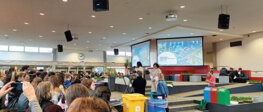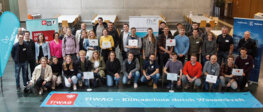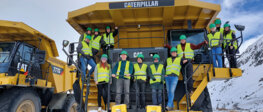Behavioral Economics(E)
Niveau der Lehrveranstaltung/des Moduls laut Lehrplan
first cycle
Lernergebnisse der Lehrveranstaltung/des Moduls
Students will learn the fundamental ways in which decision making – in economics and elsewhere – is influenced by psychological processes. This will also be contrasted to standard economic decision and risk analysis. One outcome of this awareness should be more successful decision making, especially, but not only, in financial matters. Students will also learn how the findings of Behavioral Economics can be used by policy makers to improve societal outcomes.
A focus on research methodology will demonstrate the interaction of theoretical and empirical analysis in scientific inquiry.
Voraussetzungen laut Lehrplan
none
Lehrinhalte
Research in recent decades has cast doubt on the mainstream economic conception of humans as rational decision makers. Our course studies the ways that psychology influences people in their economic roles – as consumers, business managers, investors, voters and so forth. We investigate the consequences of this irrationality for the individuals themselves as well as for society as a whole. In particular, we examine its implications for the efficient, or inefficient, functioning of markets, financial and otherwise. Course focuses include behavioral finance, cooperation and fairness.
empfohlene Fachliteratur
None of the suggested readings are required. All the suggested information is suitable to access behavioral economics as well as decision theory in both an introductory as well as in a slightly advanced way, depending on individual interests. The topics covered in class use selected parts of many of the sources mentioned below.
articles:
Gao, Yue, “A study of fairness judgments in China, Switzerland and
Canada: Do culture, being a student, and gender matter?” Judgment
and Decision Making, 4(3), April 2009, pp. 214-226.
Kahneman, Daniel, Jack Knetsch and Richard Thaler, “Fairness as a
Constraint on Profit Seeking: Entitlements in the Market,” American
Economic Review, 76(4), September 1986, pp. 728-741.
selections from these books:
Angner, 2012, A Course in Behavioral Economics.
Ariely, 2010, Predictably Irrational Revisited: The Hidden Forces that
Shape Our Decisions.
Axelrod, Robert, The Evolution of Cooperation, 1984.
Belsky, Gary and Thomas Gilovich, Why Smart People Make Big Money
Mistakes and How to Correct Them: Lessons from the New Science of
Behavioral Economics, 1999.
Eeckhoudt and Gollier, 1995, Risk - evaluation, management and
sharing.
Gollier, 2001, The Economics of Risk and Time.
Hirshleifer and Riley, 1994, The Analytics of Uncertainty and
Information.
Kahneman, Daniel, Thinking, Fast and Slow, 2011.
Mlodinow, Leonard, The Drunkard's Walk: How Randomness Rules our
Lives, 2009.
Shiller, Robert, Irrational Exuberance, 2000.
Tetlock, Philip, Superforecasting: The Art and Science of Prediction,
2015.
Thaler, Richard, The Winner’s Curse: Paradoxes and Anomalies of
Economic Life, 1992.
Thaler, Richard, Misbehaving: The Making of Behavioral Economics,
2015.
Wilkinson and Klaes, 2012, An Introduction to Behavioral Economics,
2e.
Bewertungsmethoden und -kriterien
final exam
Unterrichtssprache
Englisch
Anzahl der zugewiesenen ECTS-Credits
3
eLearning Anteil in Prozent
0
Semesterwochenstunden (SWS)
2
geplante Lehr- und Lernmethoden
integrated lecture, discussion and experiments
Semester/Trimester, in dem die Lehrveranstaltung/das Modul angeboten wird
2
Name des/der Vortragenden
Dr. Stefan Gruber
Studienjahr
1
empfohlene optionale Programmeinheiten
none
Kennzahl der Lehrveranstaltungen/des Moduls
IP_BUS101
Art der Lehrveranstaltung/des Moduls
Integrierte Lehrveranstaltung
Art der Lehrveranstaltung
Pflichtfach
Praktikum/Praktika
none



